OUR Initiatives
The mission of Purdue University's Department of Agricultural Economics is to acquire and transmit new economic knowledge to the citizens of Indiana, the nation, and the world to support more informed decisions. Below are ongoing projects that highlight those efforts:
Exciting grant opportunities open the door to new inquiry for AgEcon faculty members
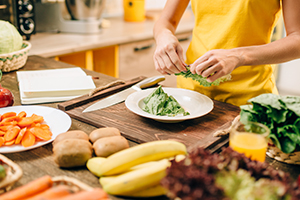
Behavioral Economics in Food and Environmental Policy: Heterogeneity, Conditionality, and Replicability – A Machine Learning Approach
Researcher: Steve Wu (PI)
Overview: Behavioral nudging has become a popular policy tool for addressing concerns related to health, nutrition, and social concerns. However, recent academic papers suggest that the impact of nudges has been overstated and sensitive to context. The project uses an economic model of incentive design to better understand the underlying economic mechanisms that drive uneven responses to nudges.
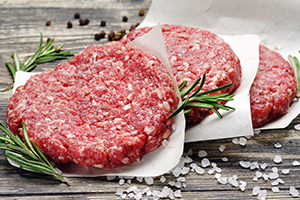
Developing a simple, natural and novel processing strategy to improve beef quality and profitability of small/medium-sized meat processors
Researchers: Brad Kim (PI), Martin Jun, Nicole Olynk-Widmar
Overview: Investigate practical and simple means of improving the palatability attributes of fresh beef. From AGEC, Nicole Olynk-Widmar will evaluate the economics of these methods through cost-benefit analyses by studying both the cost and revenue implications of various techniques.

Alternative data to measure food-away-from-home markets and their resiliency
Researchers: Tor Tolhurst (PI), Joe Balagtas, Valerie Kilders, Jayson Lusk, and Ahmad Wahdat
Overview: The project aims to fill the gaps in understanding the food-away-from-home (FAFH) market, which accounts for a significant portion of US household food expenditures. By utilizing alternative data sources like debit and credit card transactions, web-scraped pricing information, and employment data, they will measure FAFH markets, explore the factors driving consumer demand and supply, evaluate market resilience to external shocks, and communicate our findings through real-time data dashboards.
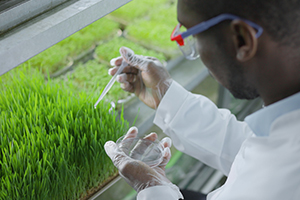
Trust in science and its communicators - the relationship between trust and consumer-decision making for new agri-food biotechnologies over time
Researchers: Vincenzina Caputo (PI, MSU), John Besley (MSU), Valerie Kilders (Purdue), and Paul Thompson (MSU)
Overview: The project proposes a tracking survey, named Trust-Bio-Tech, to capture consumer’s trust in science and acceptance of new agricultural and food technologies. Acknowledging the need for an open exchange and participatory approach across stakeholder groups to foster trust, the researchers will not only report their results through a variety of channels and formats, including data dashboards, but also invite interested parties to provide comments and questions they want addressed with the survey.
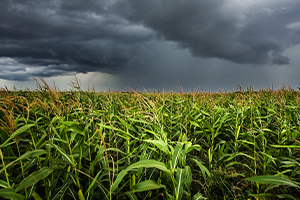
Building resilience to shocks and disruptions: creating sustainable and equitable local and regional food systems in the US Midwest region and beyond
Researchers: Maria Marshall and Renee Wiatt (Purdue), and MSU researchers.
Overview: The project aims to develop more resilient food systems for coping with multiple disasters, including pandemics, tornadoes and flooding. Marshall and Wiatt will develop and coordinate the curriculum for farmers that they will deploy as a pilot program in Illinois, Indiana and Michigan. Serving on the advisory board for this project is Jayson Lusk, Distinguished Professor and head of the Department of Agricultural Economics.
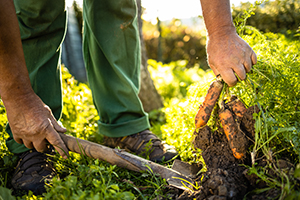
Improving the Environmental and Economic Sustainability of Agricultural Production: Optimizing the Design of Incentive Programs
Researchers: Meilin Ma (Co-PI) and Carson Reeling (Co-PI)
Overview: The project aims to study the effectiveness and welfare impacts of vertical coordination between agribusinesses and farmers in promoting the adoption of regenerative agricultural practices (RAPs). The goal is to optimize the vertical coordination to improve social welfare given existing government RAP incentive programs.
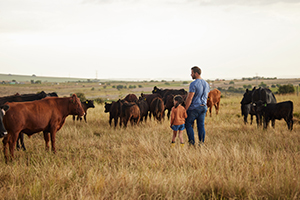
Meeting 21st Century Objectives in Livestock Sectors: Challenges and Opportunities
Researchers: Dominique van der Mensbrugghe (PI), Maksym Chepeliev, and Alla Golub (Purdue) and Mario Herrera and Daniel Mason D’Croz (Cornell)
Overview: The continuation of currently used practices toward the functioning of the livestock systems in the U.S. poses a major challenge for the achievement of sustainable development goals and climate mitigation targets. The study’s objective is to assess alternative policy solutions required to transform the sector in a sustainable manner and in the context of the global economy, while preserving the important social and economic roles that livestock systems play.
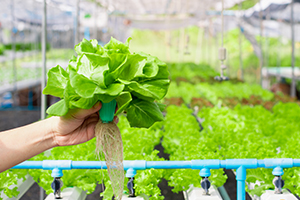
Sustainable Blue Food Systems project
Researchers: Kwamena Quagrainie (AGEC), researchers from Purdue and partner universities
Overview: To increase the production of seafood, also known as “blue food,” which is healthier and more sustainably produced than land-based foods. Working alongside researchers from the College of Agriculture and partner universities, Quagrainie's role is to ensure the economic viability of the proposed aquaponics project. He plans to form a working group comprising of academia, farmers, and suppliers to better understand the industry's needs. He will also collaborate with the Food Science department's sensory lab to better understand consumer preferences for aquaponics-grown fish and plants. The final component will include outreach activities, where the team's research findings will be shared to better inform Extension educators and farmers in the aquaponics industry.
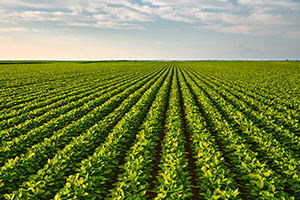
Understanding the Role of Market Structure in Achieving Agricultural Sustainability: The Case of Soybeans
Researchers: Juan Sesmero (Institutional PI) and Kansas State University researchers
Overview: The objective of the project is to evaluate the level of concentration and market dominance exhibited by large trading companies in the global soybean market. By doing so, they aim to understand how this concentration influences the impact of agricultural and environmental policies implemented among trading countries. They are particularly interested in examining the effects of these policies on trade flows (and, consequently, farmers and consumers of agricultural products), as well as on the spatial patterns of land use and their environmental footprint.
